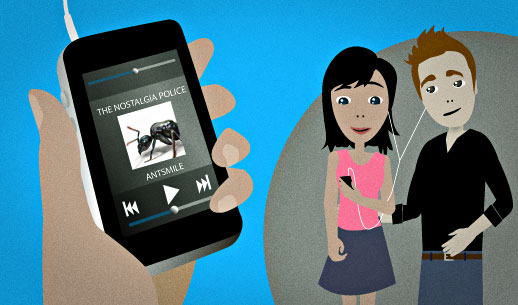“You have pretty obscure taste in music.”
You're on a date with a guy. He lets you listen to his music player. You say this because he has a lot of music on there from bands that you've never heard of.
You have pretty obscure taste in music.
Want Video and Sound? Follow us on YouTube

pretty (adjective)
You use "pretty" before an adjective to show how much of that quality something has.
"Pretty ___" is somewhere between "kind of " and "really". It basically means "a little more than you expected". For example:
This soup is actually pretty good.
I think I have a pretty good shot at getting the job.
That song is pretty catchy.
have (adjective) taste in (something)
You can use this phrase to comment on the kind of things that a person likes. For example, if someone always buys fashionable clothes, you can say:
Rob has always had great taste in clothes.
On the other hand, if he buys strange things, you can describe it this way:
He has odd taste in clothes, don't you think?
Mostly we just say that people's taste in things is "good", "bad", "excellent", "horrible", or something simple like that. But you can also give a more specific description of someone's taste like in the example at top. Here's another example of a specific description of someone's taste:
Stark was notorious for his expensive taste in women, wine, and automobiles.
obscure (something)
"Obscure" things are not very well-known. They're only known by a few people:
I dropped out of graduate school because I didn't want to spend the rest of my life researching some obscure writer from the 18th century.
You can especially use "obscure" to talk about art, music, film, etc.
